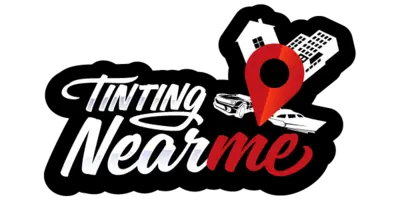2024 North Carolina Legal Tint Laws Explained
While a sleek, dark window tint on your vehicle may look striking against North Carolina’s colorful fall foliage, it’s crucial to consider the 2024 state law restrictions. You see, there’s a delicate balance between aesthetics and legalities you’ve got to strike when it comes to window tints. From the permissible tint percentage to the potential exemptions, the regulations might seem complex. But don’t worry, we’re here to simplify it all for you. Stick around, and you’ll find out just how to stay within the law while adding that stylish touch to your ride.
The information on myeyerx.net isn’t legal advice; consider it a starting point. Always verify with local and state authorities, as the final decision rests with you. We are not lawyers. For specific legal guidance, we can refer you to legal experts. Remember, knowledge of both state and local laws is essential, and even law enforcement might not be fully updated. We aim for accuracy but advise double-checking for the latest regulations.
Key Takeaways
Key Takeaways
Key Takeaways
- After-factory window tinting in North Carolina must comply with state regulations and undergo scrutiny during safety inspections.
- The maximum allowed darkness for vehicle windows is 32% VLT (Visible Light Transmission) using a North Carolina-approved window tint meter.
- There are exemptions for certain vehicles such as excursion passenger vehicles, motor homes, and ambulances, as well as medical exception permits for individuals with photosensitivity to light.
- Violating tint laws can result in fines, misdemeanor charges, and the requirement to display a medical exception sticker if applicable. Law enforcement officers strictly enforce these regulations.
Need Help Getting a Medical Exemption?
Our Doctors Are Here For You!
MyEyeRx was established with the objective of simplifying the complex landscape of state regulations pertaining to legal tint medical exemptions for window tinting. For individuals seeking to navigate these regulations without resorting to a do-it-yourself approach, we offer a streamlined solution. Our team includes qualified medical professionals who are available to conduct consultations via Zoom. These sessions are designed to assess your eligibility for a medical exemption, ensuring a personalized and efficient process for acquiring the necessary documentation.
Understanding 2024 NC Tint Regulations
As you navigate the world of car modifications in North Carolina, it’s crucial to understand the 2024 tint regulations, which stipulate that any after-factory window tinting must comply with state rules and undergo scrutiny during safety inspections. These North Carolina tint laws are designed to balance your desire to customize your vehicle with the need for safety and law enforcement visibility.
Certainly, you’re looking to strike that perfect blend of style and legality. You want your car tint to meet the 2024 North Carolina legal tint laws explained in detail here. Your vehicle window cannot measure darker than 32 percent using a North Carolina-approved window tint meter. This legal tint level ensures enough light penetrates your windows to maintain visibility for both you, the driver, and for law enforcement officials.
However, there are exceptions to the North Carolina window tint law. Certain vehicles such as excursion passenger vehicles, motor homes, and ambulances are exempted. Additionally, if you suffer from photosensitivity to light, you can apply for a medical exception permit, valid for up to five years.
When you decide to personalize your ride with window tinting, remember, it’s not just about heading to the tint shop and choosing the darkest shade. Keep in mind there’s an additional $10 charge during North Carolina safety inspections for vehicles with after-factory tinting. In understanding the 2024 NC tint regulations, you ensure you’re not just styling your vehicle, but also staying within the bounds of the law.
Legal Tint Limits for Passenger Cars
When you’re decking out your passenger car with a sleek window tint in North Carolina, it’s essential to know that state law allows a maximum of 32% VLT darkness for your front side, back side, and rear windows. This is part of the North Carolina window tint law that sets legal tint limits for passenger vehicles. The VLT tint percentage is a critical factor that determines tint darkness, which is why understanding it is crucial for anyone considering window tinting.
- The 2024 North Carolina legal tint laws explained that the windshield tint on passenger cars cannot extend more than 5 inches below the top or below the AS-1 line, whichever is longer.
- Vehicles with after-factory window tinting must be inspected during the North Carolina safety inspections. This is to ensure compliance with state requirements on window film darkness.
- There is an additional $10 fee for the North Carolina safety inspection for vehicles with after-factory window tinting.
- Certain vehicles, such as excursion passenger vehicles, motor homes, ambulances, property-hauling vehicles (rear window only), and limousines are exempt from these standard tint regulations.
In case you have a medical condition that requires darker tints, the Motor Vehicles Medical Review may grant exceptions. However, always remember that the primary purpose of these regulations is North Carolina safety. So, before you head out and get that window film installed, ensure it complies with the law to avoid potential penalties or complications during safety inspections.
Rules for Multi-Purpose Vehicle Tints
While the regulations for passenger vehicles are clear, it’s equally important to understand the tinting rules for multi-purpose vehicles in North Carolina. The North Carolina window tint law stipulates different guidelines for multi-purpose vehicles, like pickup trucks, vans, and SUVs.
The law allows these vehicles to have up to 32% visible light transmission (VLT) on the front side windows. This means that at least 32% of the light must be able to pass through the window tinting. Unlike passenger cars, the legal limit for tint darkness on the back side windows and rear windows of multi-purpose vehicles is not restricted. This allows for privacy and security in the cargo areas of these vehicles.
The windshield tint also has its own set of rules. It cannot extend more than 5 inches below the top of the windshield or below the AS-1 line, whichever is longer. Additionally, the window tint applied to any window must not be more than 20% reflective as per the Car Window Tint Laws. This is to ensure that the tint does not cause glare or blindness to other road users.
If you’re considering adding after-factory tint to your multi-purpose vehicle, be prepared for an additional $10 charge during the safety inspection. This fee is assessed due to the extra time required to check the tint’s compliance with the law.
Exemptions and Exceptions in NC Tint Laws
Despite the stringent tint laws in North Carolina, there are certain vehicles and cases that qualify for exemptions and exceptions. This means that not all vehicles in North Carolina are bound by the 35% window tint rule or the requirement that the tint be above the AS1 line on the windshield.
For instance, the following vehicles are exempt:
- Excursion passenger vehicles
- Motor homes
- Ambulances
- Property-hauling vehicles
- Limousines
- Law enforcement vehicles
- Specific multi-purpose vehicles
These exemptions ensure that specific categories of vehicles, which often require enhanced privacy or protection from sunlight, are able to meet their unique needs without violating the tint laws.
On the other hand, individuals with certain medical conditions that make them sensitive to sunlight can also apply for a medical exception permit from the Division of Motor Vehicles. This tint exemption permit in North Carolina allows them to have window tints darker than what is typically allowed by the law.
However, keep in mind that vehicles with after‐factory window tinting are subject to an additional $10 charge during North Carolina safety inspections. This fee ensures that your vehicle’s window tinting complies with state regulations.
Failure to properly display your medical exception permit or violating the tint laws can lead to fines. You could face a $50 fine plus court costs for violating the tint laws, and failing to display a medical exception sticker could result in a $200 fine. So, it’s best to stay informed and ensure you’re in compliance with North Carolina’s window tint laws.
If you would like to bypass having to fill out paperwork and dealing with the state, we can help you get an online medical exemption for window tint in North Carolina.
Consequences of Violating Tint Laws
Frequently, drivers in North Carolina find themselves facing hefty fines and even misdemeanors if they don’t adhere strictly to the state’s window tinting laws. The consequences of violating tint laws are severe, and law enforcement officers are strict about enforcing the current North Carolina window tint regulations.
A primary violation is failure to comply with the North Carolina window tint restrictions. This results in a $50 fine plus court costs, which can total up to $238. This isn’t a minor inconvenience; it’s a significant financial burden. Interestingly, the Carolina law doesn’t stop with fines. If you apply a tint that doesn’t meet the window tinting restrictions to a vehicle subject to safety inspection, you’re committing a misdemeanor. The same goes for driving a vehicle with illegal window tints.
Another crucial element of the 2024 North Carolina legal tint laws explained is the requirement for a medical exception sticker. If you have a medical condition that necessitates darker tints, you must carry a sticker in the vehicle. This sticker must be displayed properly, or you risk another violation. The failure to properly display this sticker results in a $200 fine.

Don't want the hassle? Let us take care of your exemption for you!
MyEyeRx.net is here to help you streamlines the process of obtaining a medical exemption for window tint online. Explore our services to easily transform your window tint from non-compliant to legally approved!
Because of the differences in each of the 50 states, we’ve crafted distinct guides for securing window tint medical exemptions for each of the individual states.

Toriano (Tory) Dewberry
Become one of the many satisfied clients Toriano has assisted in obtaining a medical exemption without stepping out of their homes. Click the button below to begin and discover if you're eligible for a medical exemption.

Toriano (Tory) Dewberry
Become one of the many satisfied clients Toriano has assisted in obtaining a medical exemption without stepping out of their homes. Click the button below to begin and discover if you're eligible for a medical exemption.
Frequently Asked Questions (FAQ'S)
What Is the Darkest Tint Legal in Nc?
In North Carolina, you’re allowed a tint visibility of 32% on your car’s front and back side windows. If you’ve got an SUV or van, there’s no limit on the tint darkness. But remember, law enforcement takes this seriously, so don’t push your luck. Non-compliance can lead to legal penalties. However, if you’ve got health implications, like photosensitivity, you can apply for a medical exception and go darker.
Can You Get Pulled Over for 5% Tint in Nc?
Yes, you can get pulled over for having a 5% tint in North Carolina. The state’s laws require tint measurements to allow at least 32% visible light transmission. Law enforcement can pull you over for violating this, potentially resulting in tint penalties. Despite the sun protection and privacy concerns, safety risks for officers and other drivers are paramount. Tint exemptions exist, but you’d need a valid medical permit to qualify.
Can You Have 15% Tint in Nc?
You can’t have 15% tint in NC, as it’s below the state’s legal limit of 32%. While it’s tempting to consider the UV protection levels and potential boost to car resale value that dark tints might offer, you’ll likely face fines. The tint installation process must adhere to regulations to avoid legal problems. Choose a tint that meets the visibility levels and durability factors required by North Carolina law to ensure your tinted window care is hassle-free.
What Is the Darkest Legal Tint?
In North Carolina, the darkest legal tint is 32% VLT for front and back side windows of cars. However, due to tint regulations, safety concerns, and visibility issues, it’s crucial to understand the proper installation process. Missteps can lead to legal penalties or unpleasant police encounters. Remember, tint benefits like UV protection don’t outweigh potential fines or safety risks. Always ensure your window transparency meets state laws to avoid tint removal or fines.

MyeyeRx.net
Ensuring your tint is not just about style, but legality and safety.
Let us guide you through the maze of state regulations to legal clarity.

Conclusion
In understanding North Carolina’s 2024 tint laws, you’re taking a step towards compliance and avoiding potential penalties. Whether you’re tinting a passenger car or a multi-purpose vehicle, always remember the 32% rule. Exceptions exist, but they’re not for everyone. Violations aren’t taken lightly, so tread carefully. Ultimately, it’s about safety, legality, and your responsibility as a vehicle owner. Know the rules, follow the guidelines, and drive with confidence in the Tar Heel State.
Looking to find a Reputable Window Tint Company In North Carolina?
Checkout Tintingnearme.com to Find A Local Tint Shop
After learning about window tint laws, the next step is to find a trusted local window tinting shop. Tinting Near Me offers a selection of reputable shops knowledgeable in both quality tinting and legal standards, including medical exemptions.
Choose a shop from their list for expert service that meets legal requirements and enhances your vehicle’s compliance and protection.


